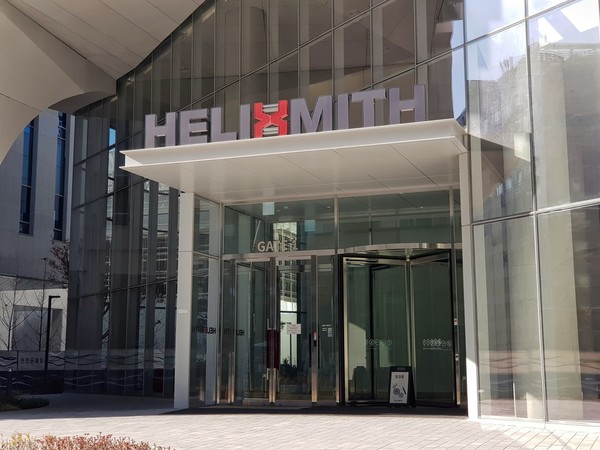Helixmith, a Korean biotech company, is set to change its largest shareholder from CanariaBio M to Biosolution Co.

According to a public filing by Helixmith on Thursday, Helixmith's board meeting entered into a management rights transfer contract with Biosolution, including a paid-in capital increase.
Biosolution will raise a total of 36.5 billion won ($28 million) through a third-party paid-in capital increase, and the deadline for the capital increase payment is Dec. 28.
As a result of the new share issuance, Helixmith's largest shareholder is expected to change from CanariaBio M, which holds a 9.39 percent stake, to Biosolution, which will hold a 15.22 percent stake after the increase.
Through this acquisition, Biosolution plans to maintain most of Helixmith's R&D programs and main pipelines, such as Engensis, NM301, and VM507.
Biosolution is also planning to utilize Helixmith's cell therapy good manufacturing practice (GMP) production facility located at Helixmith's Magok headquarters.
"We will use Helixmith's assets to develop both companies into globally recognized biotech firms," Biosolution CEO Chang Song-sun said. "The investment is not focused on a specific product or disease but on securing a platform that can generate multiple products and businesses in the field of gene and cell therapies."
A Helixmith official also said, "We plan to resolve the lawsuit filed by minority shareholders challenging the validity of the new share issuance as quickly as possible and to end our relationship with the CanariaBio M."
Meanwhile, the change in the largest shareholder of Helixmith comes after the company previously held a board meeting and entered into a management rights transfer contract with CanariaBio M on Dec. 22 of last year.
Under the accord, CanariaBio M took over 2.97 million newly issued shares allocated to third parties by Helixmith, worth 35 billion won, becoming its largest shareholder with a 7.3 percent stake.
The founder and former CEO, Kim Sun-young, stepped down as the second-largest shareholder during this process.
However, since then, CanariaBio M failed to execute the investment in Helixmith on time.
While Helixmith was supposed to receive 10 billion won from CanariaBio M for the paid-in capital increase, the payment deadline was postponed five times from April 28, to June 30, Aug. 31, Oct. 10, and finally being postponed indefinitely.
This took a heavy toll on Helixmith's stock price as the company's shares, which were around 12,000 won when the capital increase was announced, plummeted to 5,480 won on Dec. 5.
During that time, industry officials speculated that CanariaBio M might be postponing the capital increase payment to confirm the results of the phase 3-2 trial results of Helixmith's Engensis in treating diabetic peripheral neuropathy (DPN).
Helixmith had postponed the interim results announcement several times and finally decided to proceed without an interim analysis, announcing they would release the final analysis in December.
However, the company has yet to announce the results.
Helixmith started as an on-campus venture by former Seoul National University professor Kim in 1996. After receiving recognition for its potential as a gene delivery system therapeutic gene and protein technology, the company became the first company to go public on the Kosdaq market through the special technology listing system in 2005.
In 2019, Helixmith's market capitalization exceeded 4 trillion won, making it the second largest company in the Kosdaq market based on market cap at that time, and it became a representative biopharmaceutical company in Korea.
However, the company's reputation and stock price started to go downhill after it failed to make conclusions due to data contamination in its gene therapy Engensis, also known as VM202-DPN, in treating diabetic peripheral neuropathy (DPN) in 2019.
The company saw an additional setback when it unveiled that it had invested about 264.3 billion won in high-risk, high-return financial alternative assets since 2016 and lost part of the money in 2020, enraging the already disgruntled shareholders. The investment into insolvent funds raised concerns about the Korea Exchange (KRX) designating the company as an administrative issue.

